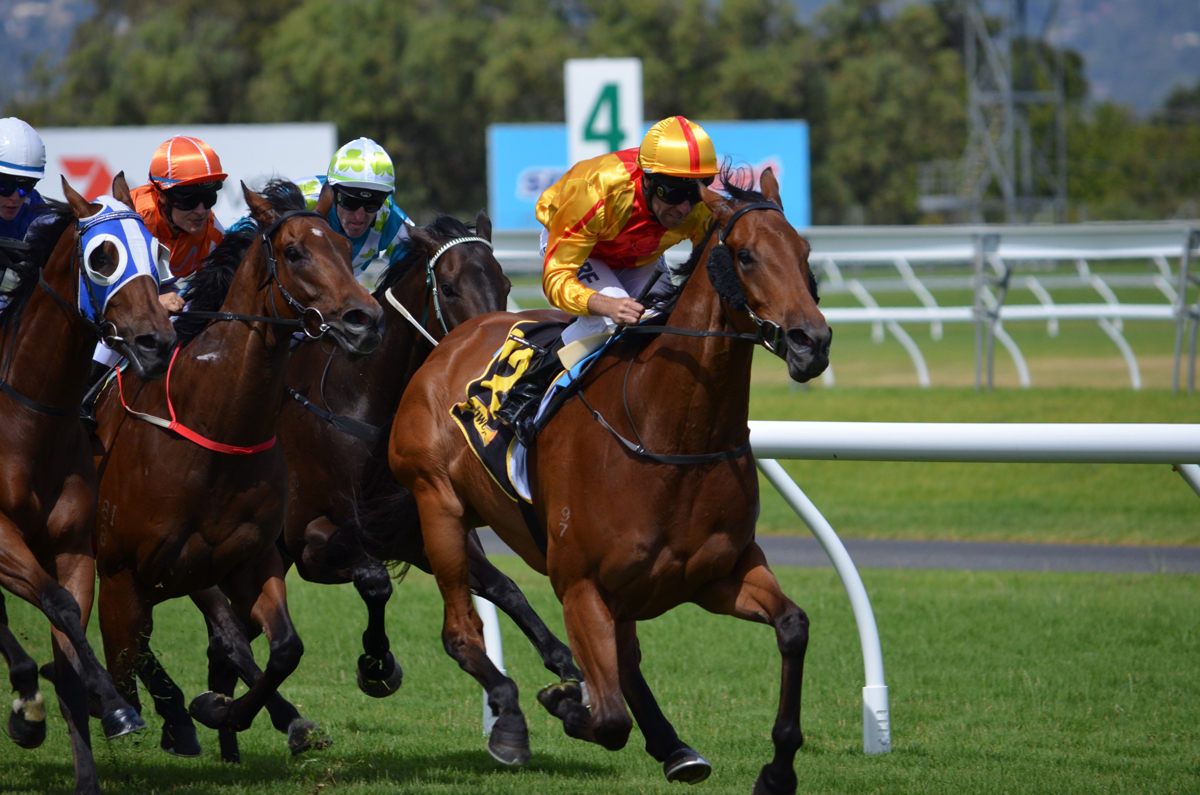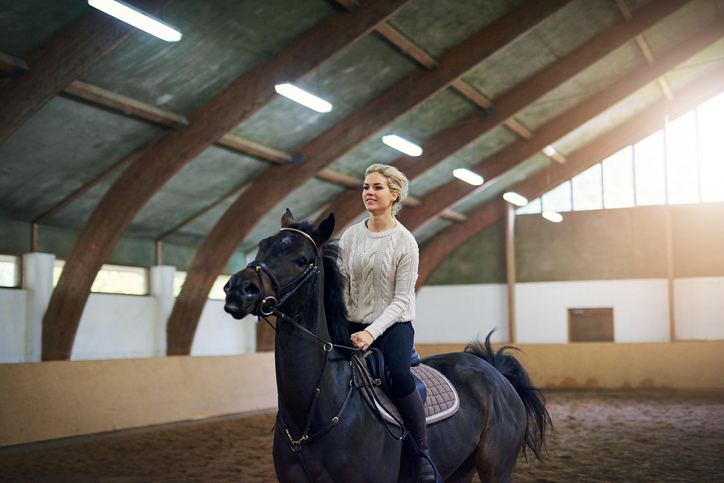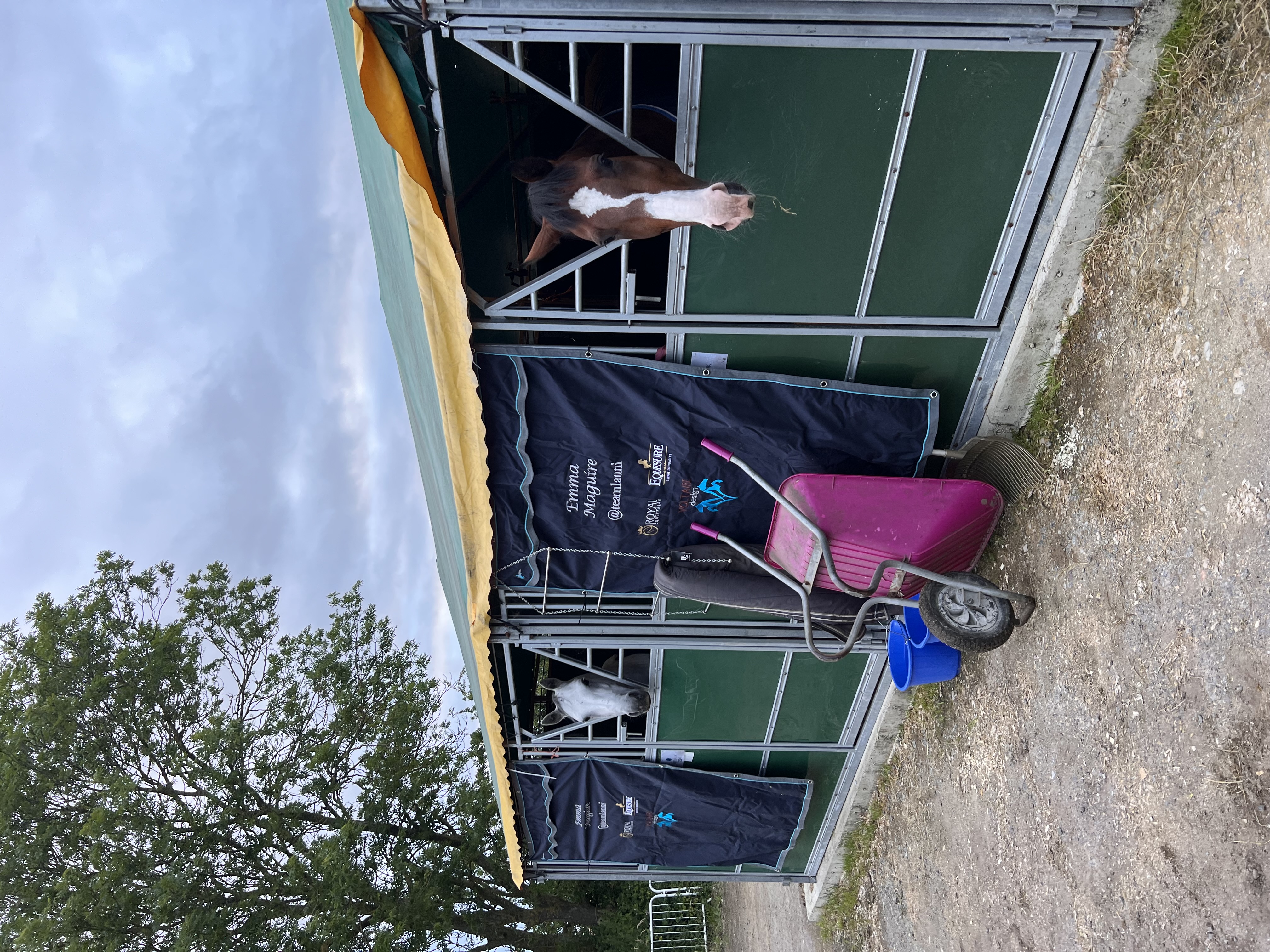If you’ve decided to take on the challenge of an ex-racehorse then you can look forward to a rich and fulfilling experience.
Ex-racers who have already been away from the track for some retraining can be suitable for a whole range of equine disciplines. However, if you’re looking to buy a horse fresh from a racing career, then you’ll need to do some careful research into retraining. To get you started we’ve put together some guidance on how to retrain one of these sensitive and spirited animals.
At Equesure we provide insurance for horses for all breeds and backgrounds of horses. So, if you’re in the market for an ex-racehorse then give us a call to discuss your insurance needs.
How does an ex-racehorse differ from a ‘normal’ horse?
All ex-racehorses in the UK will be thoroughbreds that have been bred with one thing in mind – racing. As a finely tuned athlete, their strength, speed and endurance will have been worked on tirelessly to give them the best chance of success at the track.
They will also have been fed a specialised diet to deal with the high energy demands of racing and training. And because racehorses are trained at such a young age, the ex-racer you acquire might not have reached their full mature size yet.
A difference commonly noticed by new owners is their behaviour. Characterised as hot blooded, racehorses are highly spirited and bold and can easily push you around if you let them!

Top retraining tips
Thousands of horses leave racing every year so there is a huge amount of expertise and guidance out there on how to retrain them. Here are some top tips to follow.
Give them time
Some ex-racehorses adapt easily to life after the track whereas others will find it more difficult.
Remember these animals have been bred and trained for one purpose and might have missed out on many of the experiences other young horses get to have.
Giving them a few weeks to unwind in the field and just ‘be a horse’ for a while is a good opportunity to stand back and get to know them. Keep calm and confident whatever attitude your ex-racer throws at you and you’ll eventually get through to even the naughtiest specimen!
To help you on your way be sure to speak to all those who have had experience of the horse. They’ll give you a great insight into any quirks and help you prepare a suitable training programme.
It probably goes without saying that finding out any medical issues sooner rather than later is important. Ex-racehorses can have a range of health issues that you need to be aware of when training.
Focus on the basics
Have you seen how a racehorse is ridden compared to your normal happy hacker? Indeed, the differences are so large that many ex-racehorses have to almost be trained from scratch!
A lot of new learning needs to be done by both horse and rider. For example, when you shorten the reins you’re actually asking a racehorse to go faster! And many ex-racers have little understanding of leg aids and need time to adjust to the feel of a rider’s legs on their side.
If you’re thinking of heading out for a hack with just the two of you then think again. Very few of them will be used to hacking out alone without the rest of the string, so an equine ‘babysitter’ is useful to keep them calm. Remember, the racehorse thinks that it’s doing the right thing. You need to reteach much of it.
Groundwork is by far the best way to get retraining underway. Long reining will let you work on teaching the forward driving aids and accepting the contact before a rider gets in the saddle again.
Whether out on a hack or doing some much-needed groundwork, having the right horse insurance in place is essential.
Develop a regular routine
During their years of training your ex-racehorse will have got used to a very rigid training routine. So a large yard where lots of different types of horses are being fed and exercised at different times of day is going to be stressful to many of these sensitive creatures. The horse is having to undergo a complete change in their life and you need to empathise. Riding them every day will help keep their routine constant and build an important bond between you both.

Be careful what you feed them
Racehorses are used to at least three meals a day with large amounts of protein to deal with the physical demands of racing. When they stop racing, it’s important to ensure they maintain a healthy diet. Speak to your vet about possible changes to their diet and how to make the transition slowly so it doesn’t affect their overall health.
Get some help
Be realistic about your abilities and the horse you’ve invested in. No matter how experienced you are, never be afraid to look for help and guidance.
The best place to start is Retraining of Racehorses (RoR), a charity that provides funding for the rehabilitation, retraining and rehoming of ex-racehorses. It’s a truly invaluable source of advice for ex-racehorse owners.
Insuring your ex-racer
Owning an ex-racehorse is not cheap but with horse insurance you can get help with any unexpected costs that arise. After all, even though your former champion may no longer be attending big races they can easily get themselves into trouble.
Whatever you and your horse have planned for your lives together, make sure you’ve got the protection you need by taking out horse insurance with Equesure. Our specialist team is here to make this a simple and straightforward process. Policyholders could benefit from:
- Vet fees covered up to £2,500 per incident but with an unlimited number of claims within the policy year
- An additional discount for insuring more than one horse
- Saddlery and tack cover available
- Horseboarding cover available
- Personal accident cover up to £20,000
- Public liability cover up to £2 million
- Legal protection up to £50,000 available
- EU cover/usage available upon referral
Get a quick quote for horse insurance today.
Policy benefits, features and discounts offered may very between insurance schemes or cover selected and are subject to underwriting criteria. Information contained within this article is accurate at the time of publishing but may be subject to change.





